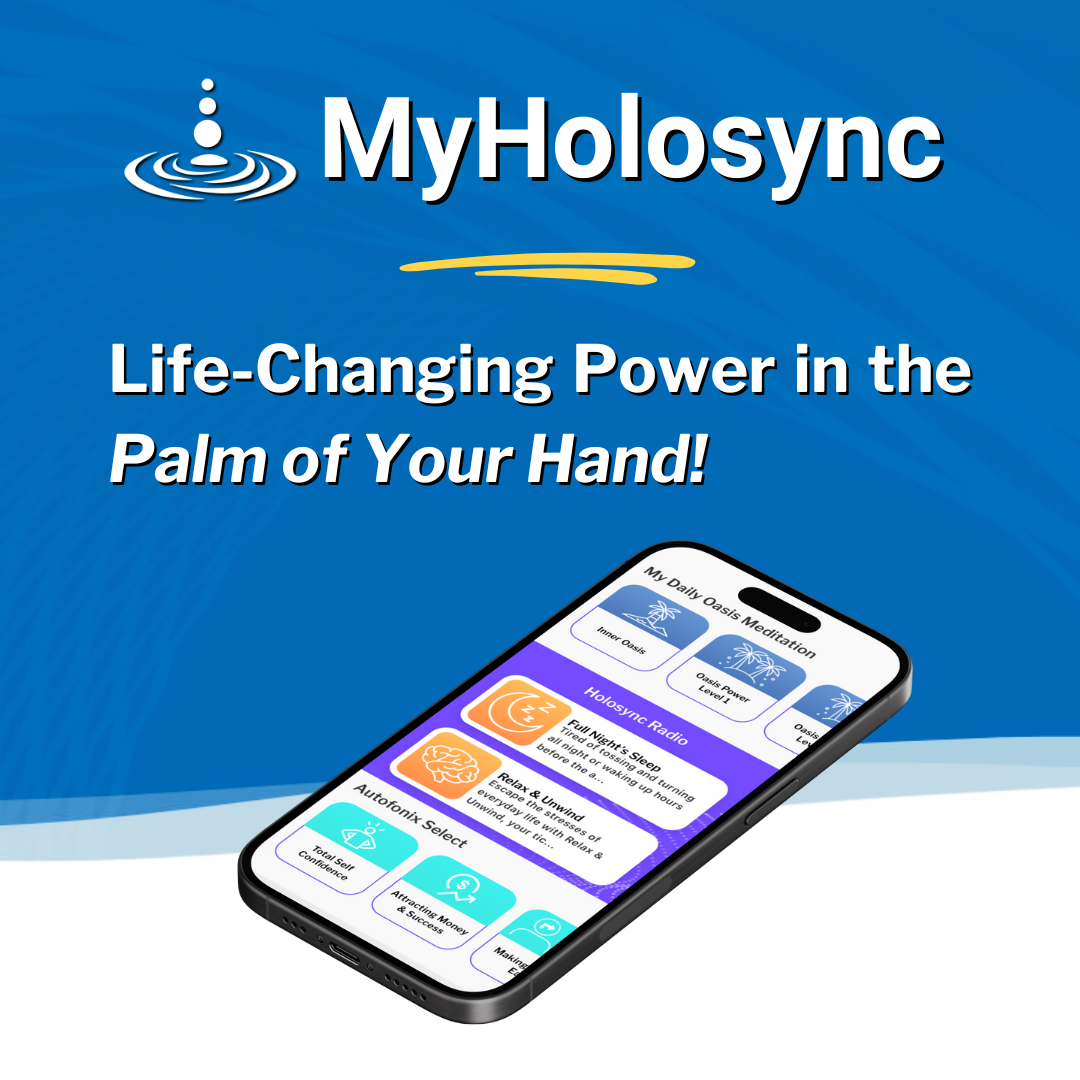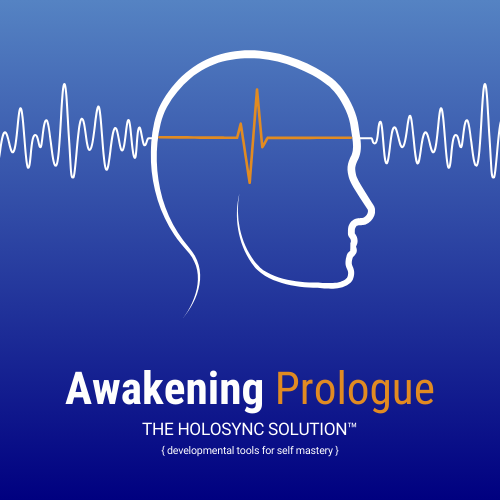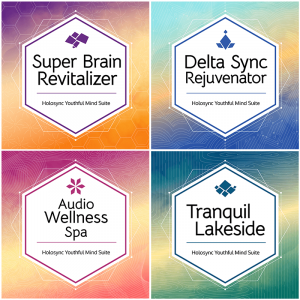
Issue #393 – Monday, September , 2023
By Marc Gilson
We recently held our fourth Safe Connection call for members of our Centerflow Healing Trauma Solution program in which we discussed the power of self-talk - that inner dialogue that runs in the background of our thoughts all day long. It was such a huge hit and helped so many on that call, that I wanted to share some of that vital lesson with you today.
You see, for most of us, that inner voice seems pretty harmless, maybe even boring, and all too easy to ignore. It’s like a radio playing in the background. But when we tune into that inner radio, we often discover that what’s being broadcast is pretty nasty stuff.

When we’re under stress, or we’ve endured emotional wounds or trauma, our self-talk can turn sour. It can become judgemental, cynical, pessimistic, and even mean. It’s like a heckler that’s constantly firing off a mean-spirited comment, berating others or ourselves.
Toxic self-talk can erode our self-esteem and shatter our confidence. It can force-feed us a constant stream of intrusive thoughts that spin stories of worry, anger, and fear. And like a swarm of locusts, it nibbles away at our mood and peace of mind.
And even though we tend to ignore that negative voice inside, experts say that it shouldn’t be taken lightly.
A study published in the Journal of Cognitive Psychotherapy found that those with high levels of negative self-talk displayed more symptoms of anxiety and depression.
Another study in the Journal of Personality and Social Psychology found a connection between negative self-talk and higher levels of cortisol, the stress hormone that accelerates aging and contributes to a range of health problems.
And yet another study, this one published in the Journal of Social and Clinical Psychology showed that negative self-talk was associated with decreased self-esteem and confidence.
It’s remarkable that something like a little negative thinking can have such a profound effect on our mental and physical well-being.
So while it’s tempting to just ignore this little negative narrator in our heads, let’s shine some awareness on it so that we can exercise some control and choice over the quality of our inner self-talk.
Here are five forms of negative self-talk that might be poisoning your peace of mind with anxiety, cynicism, and worry.
5 Dangerous Self-Talk Habits to Watch Out For
Catastrophizing
Perhaps the most obvious form of negative self-talk is catastrophizing, where our imagination really goes wild but in the worst possible way. When we find ourselves imagining the worst possible outcome for any problem we have, or might have, we’re catastrophizing. It’s amazing how good our brains can be at imagining worst case scenarios. Distressing visions of tragedy, misfortune, and disaster fill our minds, keep us up at night, and overwhelm our ability to focus.
Catastrophizing is just worrying on steroids and it leaves us in a constant state of fear, paralyzed by fantasies of worst-case scenarios that haunt us like a horror movie we wished we hadn’t watched.
Ruminating
Have you ever watched a cow chew its cud? It’s not the most exciting pastime. They can bite off a mouthful of grass and chew. And chew. Annnnd chew.
This is called ruminating and it’s also what we do when we obsess and dwell on our problems over and over, until the worries about our problems become bigger than the problems themselves. This can happen at the most inopportune times, like when we’re meditating or trying to get to sleep, and instead we can’t seem to stop thinking about that awkward thing we said at the office, or something awful that happened months ago.
When we find our self-talk constantly causing us to fixate on our fears and get stuck in the spin-cycle of worry, overthinking, and apprehension, it’s time to stop ruminating and spit those negative thoughts out.
Comparing
Comparing happens when we’re constantly defining our happiness or success against that of others. This can happen to people who spend a lot of time on social media. That FOMO, the Fear of Missing Out; that temptation to “ego-compete” with how much money others have, how much fun they’re having, how good others look, how loving their relationships are. This can cause us our self esteem to suffer, create jealousy and resentment, and is an absolute well-spring of negative self-talk.
Polarizing
Polarizing is a less obvious form of negative self-talk that causes us to think in strictly black or white terms. Dualistic thinking that only sees things in terms of right or wrong, left or right, good or bad, can leave us feeling angry or disappointed because, well, the world isn’t quite so simple. But when we’re under stress, we sometimes find ourselves without the energy to discern the nuances of our experiences. So our thinking becomes divided and we never find the middle ground. Again, social media sometimes plays into this. Nobody likes to be wrong, and arguing online has become a national pastime that can cause a surge in that negative internal talk.
Criticizing
Benjamin Franklin once said, “Any fool can criticize, condemn, and complain, and most fools do.” While we can agree with Franklin, we also should admit that it’s common to have occasional thoughts of a critical nature, whether about others or ourselves. But when our inner voice is constantly judging or making derogatory remarks, we should remember that these are precisely the kinds of thoughts researchers have been warning us to avoid.
When we hear that inner voice constantly complaining about others or berating ourselves, we’d be wise to hush that inner critic and instead focus on something a little more positive.
How to Counteract Negative Self-Talk
One proven way to combat this kind of toxic inner-dialogue is with positive affirmations.
Affirmations, when used consistently, can overwrite the harsh inner voice with ideas that inspire us, uplift us, and keep us on track with our goals.
Try creating your own affirmation script to repeat to yourself several times a day. If you’re not sure how to compose effective affirmations, try using the PPP formula:
Make your affirmations in the Present tense, make sure they’re Personal (1st person), and of course, be sure they’re Positive (stated in the affirmative).
Some examples:
- I am filled with positive thoughts
- My body is healthy and strong
- I am happy and grateful for my life
- I have everything I need to succeed
- I wake each day charged with energy and optimism

And if you’re not sure where to start, remember that Centerpointe offers a wide range of Holosync suites, many of which include relaxing soundtracks that have pre-recorded affirmations built into them using our proprietary Autofonix encoding method (a lot more effective than old-fashioned affirmation recording techniques).
Or even better, if you’re a participant in the Holosync Solution Program, remember that you can create your own custom affirmation script, record it in your own voice, and then our audio engineers mix them directly onto your daily Holosync meditation soundtracks. Easy and effective!
Negative self-talk doesn’t have to rule your life or rob you of your peace of mind. As our founder Bill Harris said, “You talk to yourself all day long. Why not make that talk positive?”
Trauma & Self-Talk
By the way, if you’re interested in watching the replay of the group coaching session that I mentioned at the beginning of this Mind Power, then please check out the Centerflow Healing Trauma Solution program here.
When you sign up, you’ll automatically get access to all of the previously recorded Safe Connection calls (including our last one on self-talk) and you’ll gain exclusive access to join us live during these calls going forward. We also give away free gifts with each monthly Safe Connection call and so far the feedback is that these calls and gifts are super useful.
You’ll also get a ton of powerful Holosync tools for healing from trauma, as well as unlimited personalized 1-on-1 coaching.
Learn more right here.
Check It Out!
Centerflow Healing Trauma Solution
Comprehensive Trauma-Healing Program
Sign up today & join our next Safe-Connection Group Coaching Call
How to Be Okay
(Even When Nothing Feels Okay)
Wednesday, October 11 at 12PM PT (3PM ET)
Trauma causes a ripple effect that disrupts your life - until you can finally release and heal.
That’s why we created the ultimate at-home solution that makes it easy to free yourself from the trauma in your life!
Centerflow Healing Trauma Solution combines our most advanced neuro-audio technology, 1-on-1 coaching, and group coaching to provide you with the ultimate at-home trauma healing solution.
SIX powerful trauma-healing solutions that use a mix of our Holosync, Autofonix, and Lateral Carrier Boost technologies to target specific symptoms of trauma.
FOUR extraordinary bonuses including a listening guide, healing journal, 1-on-1 coaching and monthly Safe-Connection group coaching
It’s our most powerful trauma-healing collection ever!
Wise Words

This Really Happened
Wow, that was a nice experience! I have tried meditating before and never really found that sweet spot, but here l was completely immersed with energy traveling through my whole body and tingling in my hands and feet! Did not want to move when it was over! Totally relaxing.
~Patryce E
5-Day Challenge Participant
In Case You Missed It - Listen to It!
A Gentle Revolution
Practicing Mindful Compassion
By Marc Gilson
September 18, 2023
We Want to Hear From You!
What does your self-talk tell you?
Post your story on our Facebook Page.
Not on Facebook? Tell me about the impact that meditation with Holosync has had on your daily life. Stress? Sleep? Weight Loss? Focus? Spiritual Connection? Other? Email your story here.





















